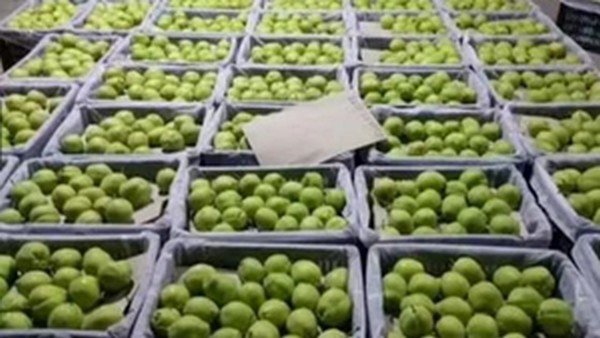The harvest season for pears has already begun in the northern hemisphere. However, the ongoing shipping crisis causes delays, which affect the freshness of pears upon arrival in the destination market. Post-harvest fresh-keeping solutions are therefore of crucial importance for the pear industry.

Sam is a spokesperson for Shandong AWT Bio-tech, a company that provides cold-storage and fresh-keeping services for the fruit industry. He first talked about the ideal storage conditions for pears.
"Pears are best kept at temperatures between 0-1℃. However, when the pears are brought to temperatures below zero immediately after the harvest, then they are likely to suffer frost damage. Pears require gradual cooling until they can be kept at the ideal temperature. Moreover, the temperature in cold storage needs to be stable. Large fluctuations are not good for the pears. Second, humidity is important. Pears require humidity levels of RH 90%-95%. However, in most warehouses the temperatures are slightly higher, so the humidity levels should be slightly lower around 85%-90% to avoid the pears going bad. Third, the composition of gasses is important. Pears are sensitive to CO2 and low concentrations of O2. The level of CO2 should not exceed 1% or the pears will begin to decompose. Pears release large amounts of ethylene, which should be controlled to extend the shelf life of pears in their destination market."
"Control over ripening and decomposition is key to the maintenance of nutrients and freshness in pears," said Sam. "whether traders use cold storage or air-conditioned storage, they require ethylene control to preserve nutrient levels, firmness, and flavor. Control over the production and impact of ethylene can extend the shelf life of pears by more than 3 months," explained Sam.
"Ethylene is a gaseous hormone. Pears release small volumes of ethylene as part of the ripening process. However, the meristem, seeds, and wilted flowers all release large amounts of ethylene. The ethylene stimulates a bond between RNA and proteins, which speeds up respiration in the fruit body, and initiates organic processes that quicken the ripening process."
"1-MCP is an ethylene inhibitor. 1-MCP will bond with the ethylene receptors in fruit before ethylene inside the fruit or in the environment can bond with ethylene receptors in the fruit. 1-MCP occupies the receptors and stops the ethylene from bonding. The ripening process in pears is temporarily halted as a result. Only after the pears are taken from cold storage and exposed to the outside air does the process resume. The pears then produce new ethylene receptors and a series of organic processes starts again, which stimulates the ripening process. The product quality of pears is very well protected in storage," explained Sam.
"Our Logfresh technology exposes fruit in storage to 1-MCP for 24 hours. The ethylene receptors in the pears are then bonded with 1-MCP and the pears can be kept in regular cold storage. This treatment effectively reduces the risk of insect pests and plant diseases in storage, and maintains the firmness, crunchiness, color, flavor, fragrance, and nutrients in pears."
According to Sam, "Our Logfresh technology is already applied with great effect and to the satisfaction of our clients in Argentine, New Zealand, South Africa, and Australia. At the same time, we also developed suitable fresh-keeping products for other ethylene-sensitive fruits such as apples, kiwi fruit, avocados, and bananas, as well as tomatoes and fresh flowers."
Shandong AWT Bio-tech has more than 25 years of experience in the research and development of fresh-keeping solutions for the fruit and vegetable industry. The company team specializes in product development and technological innovation. They have developed 1-MCP fresh-keeping solutions, mango ripening solutions, banana ripening solutions, fresh-keeping pads for grapes, and other innovative products for domestic and foreign use.
Their 1-MCP products are currently registered in Argentina, New Zealand, and Australia. The company works with distributors in many different regions across the globe, but they are always looking for new strategic partners interested in collaboration.
For more information:
Sam
Shandong AWT Bio-tech Co., Ltd.
WhatsApp: +86 18615225880
WeChat: +86 18615220662
E-mail: sales@awt-biotech.com
Website: www.chinesepost-harvest.com
